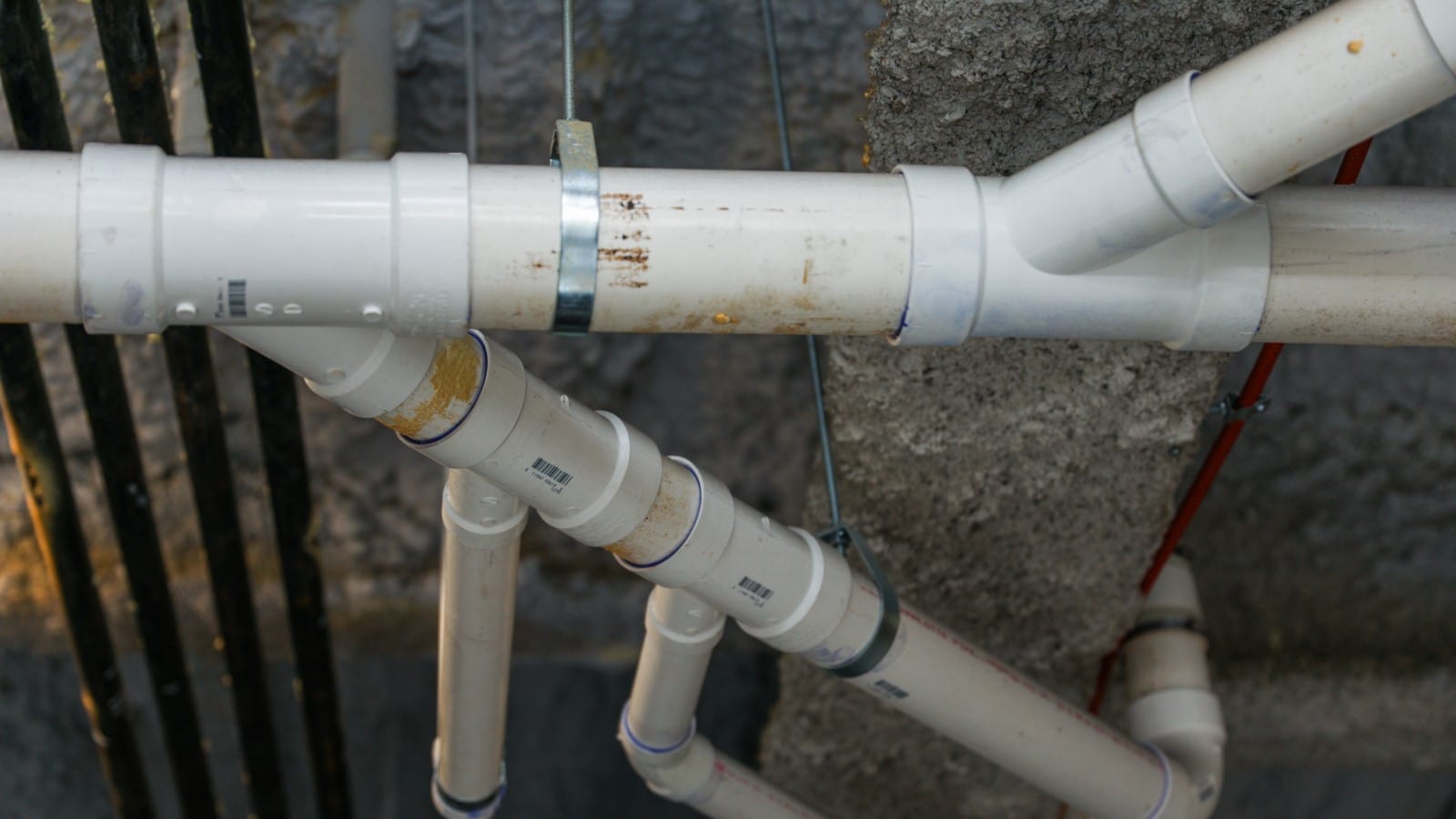Ensuring the safety and integrity of your home in Rockwall, TX, involves understanding the critical role a professional plumber plays in detecting and addressing natural gas leaks. These leaks, often invisible and sometimes odorless, pose significant risks to property and personal safety. Here’s how a skilled plumber tackles this challenge:
- Inspection of Gas Appliances: The first step often involves thoroughly checking all gas appliances. A plumber looks for signs of wear and tear or malfunction, which could indicate a leak.
- Odor Detection: Although natural gas is odorless, an additive that smells like rotten eggs is used to help detect leaks. Plumbers are trained to identify this distinct odor.
- Advanced Equipment: Professionals use specialized equipment to detect even the slightest trace of a gas leak, ensuring no detail is missed.
- Expertise in Plumbing Systems: Understanding the intricate layout of plumbing and gas lines is crucial. Plumbers leverage their knowledge to identify potential leak points.
- Safety Protocols: Upon detecting a leak, a plumber follows strict safety protocols to address and repair it, ensuring the safety of your home.
Now, let’s delve into the importance of professional expertise and training. Beyond utilizing advanced equipment, plumbers rely on extensive knowledge and sensory skills to detect and manage gas leaks effectively. This comprehensive approach ensures thorough inspections and precise interventions in various scenarios.
How Does a Plumber Find a Gas Leak? Unveiling the Techniques and Tools for Accurate Detection
A skilled plumber combines various techniques and tools to detect gas leaks accurately:
- Electronic Gas Detectors: Sensitive devices to detect minute amounts of gas.
- Infrared Cameras: For visually detecting leaks, especially in hard-to-reach areas.
- Sensory Detection: Using smell and sound to identify tell-tale signs of a leak.
- Inspection of Appliances and Connections: Checking gas stoves, water heaters, and HVAC systems for signs of leaks.
- Routine Preventive Maintenance: Regular checks and maintenance to prevent leaks.
Inspecting Household Appliances and Connections
Routine Checks for Potential Leak Sources
Plumbers conduct thorough inspections of household appliances and gas connections, focusing on the following:
- Gas Stoves: An unusual flame color, like orange or red instead of blue, can indicate improper combustion and a potential gas leak.
- Water Heaters and HVAC Systems: Unusual noises or functioning from these appliances can also point to gas leaks.
Preventive Maintenance
Regular preventive maintenance by a professional plumber can identify and rectify minor issues before they escalate into significant gas leaks. Homeowners are advised to schedule routine inspections for peace of mind.
Emergency Protocols for Suspected Gas Leaks
Immediate Steps to Take in Case of a Leak
In an emergency situation where a gas leak is suspected, the following steps are crucial:
- Safety First: If you suspect a gas leak, evacuate the area immediately. Do not use electrical devices or open flames, as they can ignite the gas.
- Professional Intervention: Call a licensed plumber specializing in gas leak detection and repair. They will have the tools and expertise to handle the situation safely and effectively.
After ensuring everyone’s safety and contacting professionals, it’s essential to understand the sophisticated methods and tools experts use to detect and address gas leaks.
Advanced Detection Equipment: Tools of the Trade
High-Tech Methods for Precise Leak Identification
In the realm of gas leak detection, in both homes and businesses, professional plumbers are equipped with an array of advanced tools that go beyond the conventional methods. These high-tech methods are crucial in accurately identifying and locating gas leaks, ensuring the safety and integrity of any property. The equipment includes:
- Electronic Gas Detectors: These sensitive devices can detect minute amounts of gas in the air, signaling the presence of a leak. They are particularly effective in identifying early signs of a gas leak, allowing for prompt intervention.
- Infrared Cameras: Some plumbers might use infrared technology to detect gas leaks, especially in hard-to-reach areas visually. This technology is adept at finding the source of a leak by highlighting temperature differences caused by escaping gas.
In addition to these, the latest advancements in leak detection technology, as outlined in the NETL’s report on “Natural Gas Leak Detection in Pipelines,” include:
- Lidar systems and diode laser absorption are active monitoring techniques that use laser technology to detect gas leaks. They are highly effective at covering large areas and can precisely pinpoint leak locations, making them invaluable in residential and commercial settings.
- Thermal Imaging and Multi-Wavelength Imaging: These passive monitoring methods detect leaks by analyzing temperature differentials or light wavelengths. They are instrumental in scenarios where the leak’s exact location is challenging to determine through traditional means.
By employing these sophisticated tools, plumbers can detect the presence of a gas leak and accurately find the source, ensuring quick and efficient resolution. This precision is critical in mitigating risks and preventing potential hazards associated with gas leaks.
Importance of Professional Equipment
While some homeowners and business owners might consider purchasing a gas leak detector for peace of mind, it’s important to remember that these tools are most effective in the hands of trained professionals.
Plumbers have the expertise to interpret the readings accurately and take appropriate action. Their ability to utilize advanced detection methods, such as Lidar systems, thermal imaging, and multi-wavelength imaging, plays a pivotal role in ensuring the safety of a property. These methods help identify the signs of a gas leak and implement the necessary measures to address and rectify the issue effectively.
Sensory Detection: Using Senses to Identify Leaks
The Role of Smell and Sound in Leak Detection
In addition to technical equipment, plumbers also rely on their senses to detect gas leaks:
- Smell: Natural gas is odorless, but gas companies add a distinct sulfurous smell to alert people to leaks. Plumbers are trained to identify this smell quickly.
- Sound: A hissing or whistling noise near gas lines or appliances can indicate a gas leak. Plumbers listen to these sounds during inspections.
Educating Homeowners on Sensory Signs
Educating homeowners about these sensory signs is also part of a plumber’s job. Recognizing these early warning signs can lead to quicker professional intervention and potentially prevent hazardous situations.
Empowering Rockwall Homeowners with Essential Gas Leak Knowledge
In the quest to maintain the safety and integrity of your home, especially concerning a gas leak in your Rockwall, TX residence, it’s vital to be well-informed. Here are some critical points to remember:
- Recognize the Signs: Be aware of the smell of rotten eggs, a sign of a natural gas or propane leak, and listen for hissing sounds near gas lines.
- Regular Appliance Checks: Regularly inspect your gas appliances for signs of leaks. Anomalies in flame color or appliance noises can be early indicators.
- Professional Expertise: Trust in the trained expertise of plumbers who use sophisticated equipment, such as electronic gas detectors and infrared cameras, for precise leak detection.
- Emergency Preparedness: Know the immediate steps to take if you suspect a leak, such as evacuating the area and avoiding electrical devices.
- Proactive Measures: Use preventive measures, like soapy water, to detect a gas leak at joints or near the gas meter, and schedule regular maintenance checks.
Remember, while tools like carbon monoxide detectors and DIY methods may provide some level of detection, they cannot replace the precision and safety assurance a professional plumber offers. A leak in your home, particularly a gas leak, demands immediate attention and expertise.
Act Now
Do not hesitate to reach out if you’re concerned about a potential gas leak in your home. Our experts at Intown Plumbing are equipped and ready to help you maintain a safe and secure home environment. Visit Intown Plumbing today and ensure your home’s safety against gas leaks.





